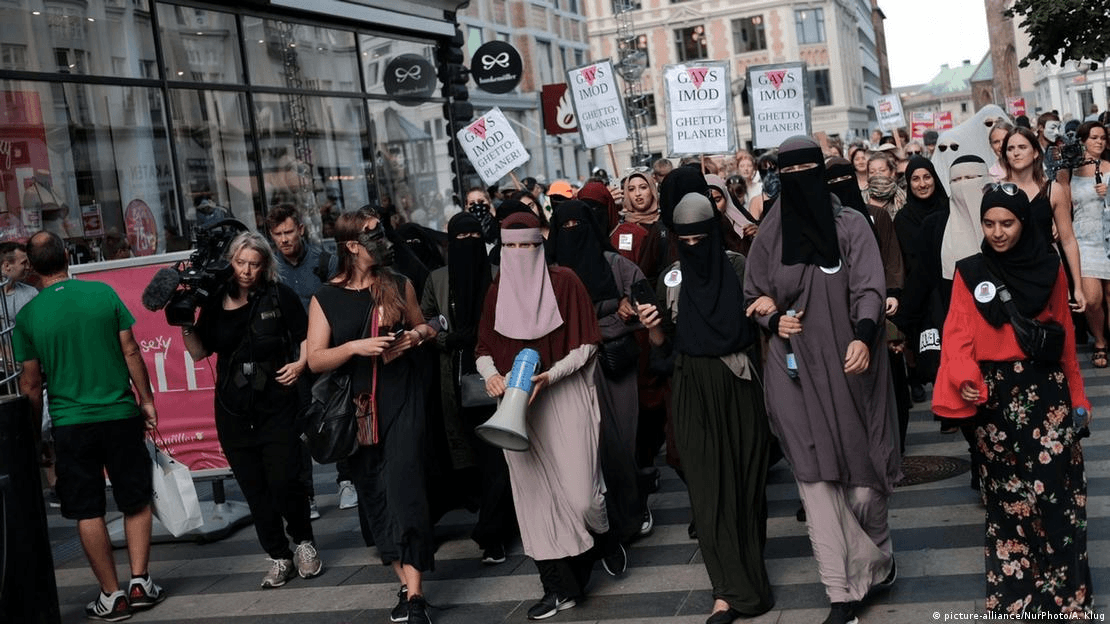
International Radicalism Observatory
 +905534025560
+905534025560 info@urad.com.tr
info@urad.com.tr 06560, Söğütözü Cad. No:43 Ankara, Turkiye
06560, Söğütözü Cad. No:43 Ankara, Turkiye
Association

Introduction
The radicalization of immigrants and diaspora communities is one of the most significant security and social issues of the 21st century. Immigrants facing alienation, marginalization, and discrimination in their new countries of residence can accelerate this process. The radicalization process of diaspora communities and immigrants, how this process can be prevented, the differences between ethnic and religious radicalization, the reactions created in the local society, and whether it is possible to send radicalized immigrants back will be examined in this report. Additionally, the hazards of Arab immigrants becoming radicalized and how diaspora communities support terrorism will also be discussed.
How does the Radicalization of Diaspora Communities Occur?
The radicalization of diaspora communities is a result of the interaction of various social, economic, and political factors. This process typically unfolds in four main stages:
Alienation and Marginalization
Immigrants may experience feelings of alienation when they encounter cultural differences and social discrimination in their new countries. This situation can lead to their detachment from society and a turn towards radical ideologies. For instance, Muslim immigrants in the UK might be prone to joining radical groups due to marginalization and discrimination (Hoffman, 2007, p. 12).
Search for Collective Identity
Diaspora communities seek a collective identity to preserve and strengthen their identities. This search can make them susceptible to radical ideologies. Religious identities, in particular, play a significant role in the radicalization process of diaspora communities (Menkhaus, 2007, p. 14).
Exposure to Radical Ideologies
Exposure to radical ideologies is a critical stage of the radicalization process. Immigrants exposed to these ideologies through social media, religious leaders, and radical groups may begin to adopt radical thoughts (Gunaratna, 2007, p. 3).
Active Participation
The final stage of radicalization is the active participation of immigrants in terrorist activities. This participation usually involves recruitment, fundraising, training, and operational activities (Hoffman, 2007, p. 3).
Economic and social influences
Economic and social factors play a significant role in diaspora communities’ radicalization processes. Unemployment, poverty, social exclusion, and discrimination can trigger immigrants to turn to radical ideologies. These factors can particularly increase radicalization among young immigrants. For instance, young Muslim immigrants living in the suburbs of France are inclined to join radical groups due to unemployment and social exclusion (Khosrokhavar, 2017).
Psychological Factors
Psychological factors also play an important role in the radicalization process. Identity crises, personal traumas, and the search for belonging can lead individuals to turn to radical ideologies. Especially during their identity searches, young people can fall under the influence of radical groups. This situation facilitates the propaganda efforts of radical groups targeting young people and drawing them into radical ideologies (McCauley & Moskalenko, 2011).
Cultural Factors
Cultural differences and conflicts can also be influential in the radicalization process. When immigrants struggle to adapt to the cultural norms and values of their new countries, they may feel excluded and alienated. This situation can push them towards radical ideologies and lead them to join radical groups in defense of their cultural identity (Hwang, 2018).
The distinctions between ethnic and religious radicalization in diaspora communities are significant.
Ethnic and religious radicalization is based on different dynamics and motivations:
Ethnic Radicalization
Ethnic radicalization typically occurs to protect the rights and interests of an ethnic group. This type of radicalization can arise in diaspora communities in connection with conflicts in their homelands. For example, Tamil diaspora communities provide support to the Tamil Tigers, representing a case of ethnic radicalization (Menkhaus, 2007, p. 35).
Religious Radicalization
Religious radicalization, on the other hand, occurs to defend and spread a religious identity. Religious leaders and radical groups often encourage this type of radicalization. Immigrants’ feelings of alienation and marginalization in their new countries fuel religious radicalization (Hoffman, 2007, p. 12).
Motivations and Goals
The primary difference between ethnic and religious radicalization lies in their motivations and goals. Ethnic radicalization usually aims to defend the rights of a specific ethnic group and support conflicts in their homelands while religious radicalization aims to spread religious ideologies and defend religious identity (McCauley & Moskalenko, 2011).
Tools and Methods
Ethnic and religious radicalization employ different tools and methods. Ethnic radicalization generally involves armed struggle, political lobbying, and leveraging the economic power of diaspora communities. Religious radicalization occurs under the influence of religious leaders, religious education, and propaganda activities (Chernov Hwang, 2018).
The Native Society’s reactions to the radicalization of immigrants are significant.
The radicalization of immigrants can elicit a variety of reactions in native society:
Security Concerns
Radicalized immigrants raise security concerns in their native society. The rise in terrorist attacks creates fear and anxiety among the general population (Gunaratna, 2007, p. 3).
Social Polarization
Radicalization can lead to social polarization between native society and immigrant communities. This situation can disrupt social cohesion and increase discrimination (Zimmermann, 2007, p. xi).
Political Reactions
Immigrant radicalization may prompt governments to implement stricter immigration policies. Such policies can further marginalize immigrant communities (Zimmermann, 2007, p. 39).
Security policies and measures
Immigration radicalization can prompt governments to tighten security policies. This includes increased surveillance and monitoring activities, stricter border controls, and more operations against radical groups. However, these measures can further marginalize immigrant communities (Bell, 2007).
Social Dynamics
Radicalization can also affect social dynamics between native society and immigrant communities. The native society’s attitudes toward immigrants may harden, and discrimination may increase. This situation can disrupt social cohesion and heighten social tensions (Khosrokhavar, 2017).
Is It Possible to Deport Radicalized Immigrants?
Deporting radicalized immigrants can encounter various challenges and legal obstacles.
Legal Obstacles
Many Western countries find it difficult to deport radicalized immigrants due to human rights and international law. Legal prohibitions prohibit deporting individuals to countries where there is a risk of torture or ill-treatment (Bell, 2007, p. 22).
Surveillance and Monitoring Challenges
To deport radicalized immigrants, an effective surveillance and monitoring mechanism is required. Monitoring such individuals demands significant resources and effort from security forces (Zimmermann, 2007, p. 39).
International law and human rights
International law and human rights play a crucial role in the deportation of radicalized immigrants. Many countries restrict deportation procedures due to concerns over human rights violations and the risk of torture. This makes it difficult to deport radicalized immigrants and necessitates the search for alternative solutions (Hoffman, 2007).
Alternative Solutions
We can implement rehabilitation and reintegration programs instead of deporting radicalized immigrants. These programs aim to reintegrate radicalized individuals into society and distance them from radical ideologies. Such programs can be an effective way to reduce the risk of radicalization and enhance social cohesion (McCauley & Moskalenko, 2011).
The radicalization of Arab immigrants poses both dangers and threats.
The radicalization of Arab immigrants poses a variety of risks and threats to both host countries and global security.
Terrorist Activities
Radicalized individuals among Arab immigrants can engage in terrorist activities and carry out attacks. This situation threatens both local and international security (Gunaratna, 2007, p. 3).
Intelligence and Security Challenges
The radicalization of Arab immigrants creates significant challenges for intelligence and security forces. Monitoring the communication networks of radical groups and preventing terrorist activities can become more difficult (Zimmermann, 2007, p. 39).
Social Incompatibility
Radicalized Arab immigrants can lead to social incompatibility and cultural conflicts. This situation increases tensions between the local society and immigrant communities (Hoffman, 2007, p. 12).
Global Security and Terrorism
The radicalization of Arab immigrants poses a significant threat to global security and terrorism. Radicalized individuals can join international terrorist networks and carry out attacks on a global scale. This situation requires a reevaluation and strengthening of international security strategies (Chernov Hwang, 2018).
Social integration and conflict
The radicalization of Arab immigrants can complicate social integration processes in host countries and increase cultural conflicts. This situation disrupts social cohesion and heightens tensions between local society and immigrant communities. Therefore, we should develop policies that promote the social integration of Arab immigrants (Khosrokhavar, 2017).
How Do Immigrants in the Diaspora Support Radicalization and Terrorism?
Immigrants in the diaspora provide support for radicalization and terrorism in a variety of ways:
Fundraising
Diaspora communities engage in fundraising activities for radical groups. People often collect these funds both voluntarily and forcibly (Menkhaus, 2007, p. 2).
Recruitment
Radical groups recruit new members from within diaspora communities. This recruitment process typically occurs through religious and ideological propaganda (Gunaratna, 2007, p. 3).
Provision of Weapons and Materials
Diaspora communities supply weapons and other materials for radical groups. Organized crime networks often facilitate these supplies (Menkhaus, 2007, p. 35).
Lobbying Activities
Diaspora communities lobby their adopted governments to provide political support for radical groups. These lobbying activities often help radical groups gain legitimacy (Menkhaus, 2007, p. 2).
Organizational structures and support mechanisms
Diaspora communities use various mechanisms to support the organizational structures of radical groups. These mechanisms include financial support, logistical assistance, and political lobbying. For instance, radical groups can secure financial resources through diaspora communities to fund their operations (Hoffman, 2007).
Propaganda and Ideological Dissemination
Diaspora communities can support the propaganda and ideological dissemination activities of radical groups. This includes the spread of radical ideologies through social media and other communication tools. Such activities help radical groups recruit new members and expand their ideological influence (Chernov Hwang, 2018).
Conclusion
The radicalization of diaspora communities and immigrants poses a serious threat to global security. This process occurs through the interaction of various factors, such as alienation, marginalization, and exposure to radical ideologies. Additionally, we should take special measures to account for the differences between ethnic and religious radicalization. Immigrant radicalization can elicit reactions such as security concerns and social polarization in the native society. Deporting radicalized immigrants faces legal and practical challenges. The radicalization of Arab immigrants presents various dangers, including terrorist activities and social incompatibility. Diaspora communities support radicalization and terrorism through fundraising, recruitment, weapons provision, and lobbying activities.
References
1. Gunaratna, R. (2007). Al Qa’ida and Diasporas. In B. Hoffman, W. Rosenau, A. J. Curiel, & D. Zimmermann (Eds.), The Radicalization of Diasporas and Terrorism (p. 3). RAND Corporation.
2. Menkhaus, K. (2007). African Diasporas, Diasporas in Africa, and the Terrorist Threat. In B. Hoffman, W. Rosenau, A. J. Curiel, & D. Zimmermann (Eds.), The Radicalization of Diasporas and Terrorism (p. 2). RAND Corporation.
3. Hoffman, B. (2007). Conference Summary. In B. Hoffman, W. Rosenau, A. J. Curiel, & D. Zimmermann (Eds.), The Radicalization of Diasporas and Terrorism (p. 3). RAND Corporation.
4. Zimmermann, D. (2007). Conference Summary. In B. Hoffman, W. Rosenau, A. J. Curiel, & D. Zimmermann (Eds.), The Radicalization of Diasporas and Terrorism (p. xi). RAND Corporation.
5. Bell, S. (2007). The Radicalization of Diasporas and Terrorism. RAND Corporation.
6. Chernov Hwang, J. (2018). Becoming Jihadis: Radicalization and Commitment in Southeast Asia. Oxford University Press.
7. Khosrokhavar, F. (2017). Radicalization: Why Some People Choose the Path of Violence. The New Press.
8. McCauley, C., & Moskalenko, S. (2011). Friction: How Radicalization Happens to Them and Us. Oxford University Press.

Prof.
Prof. Dr. Özcan Güngör was born in 1977 in Çorum, Turkiye. In 2001, he graduated from Ankara University Faculty of Divinity. He has worked in various units of the Presidency of Religious Affairs and in the USA, served as a faculty member at Atatürk University, and is currently working at Ankara Yıldırım Beyazıt Univers... [See profile]

Oğuz Demir
19/03/2025

Abdullah Denikul
17/02/2025

Hilmi Demir
14/02/2025

Hilmi Demir
27/12/2024

Latife Sümeyye Uslu Cönger
25/12/2024